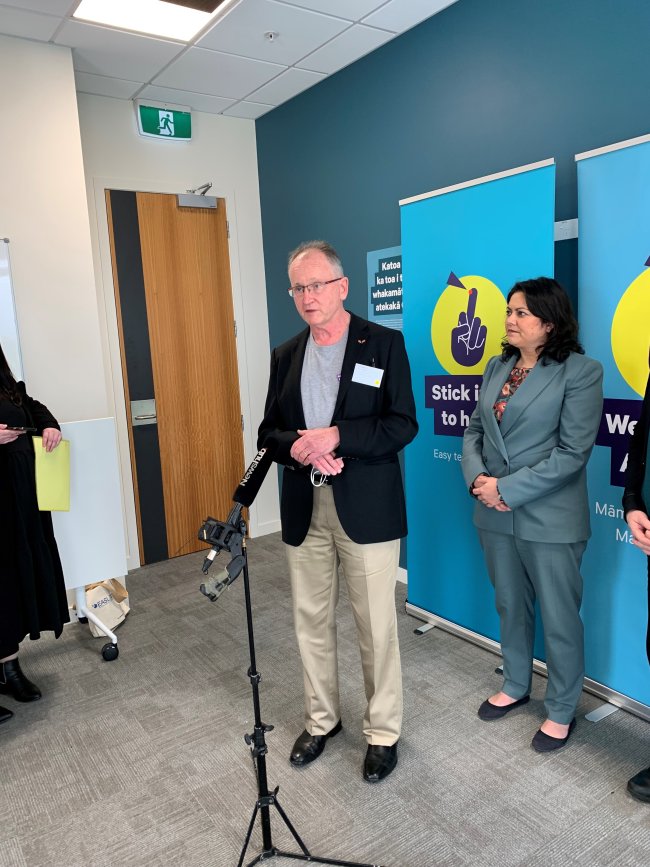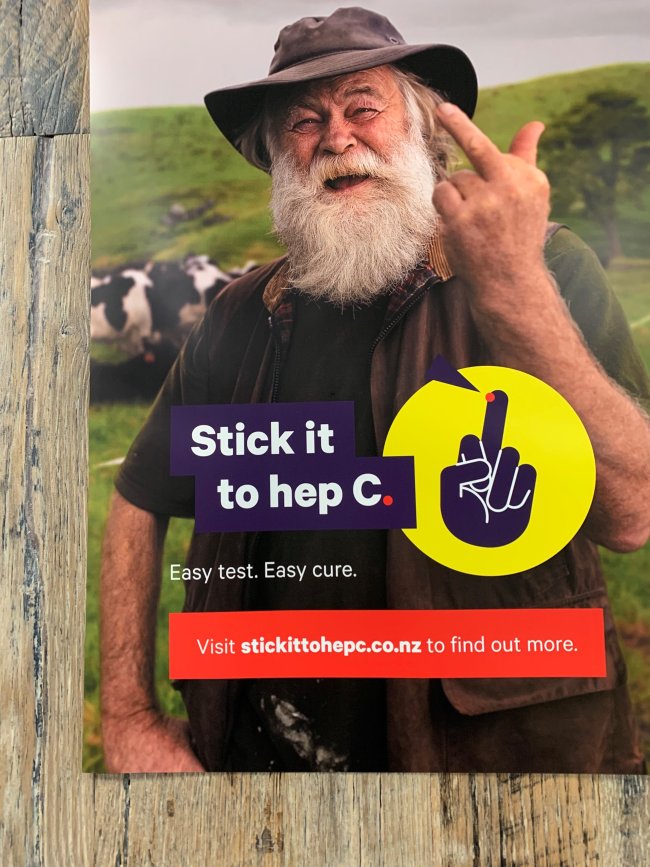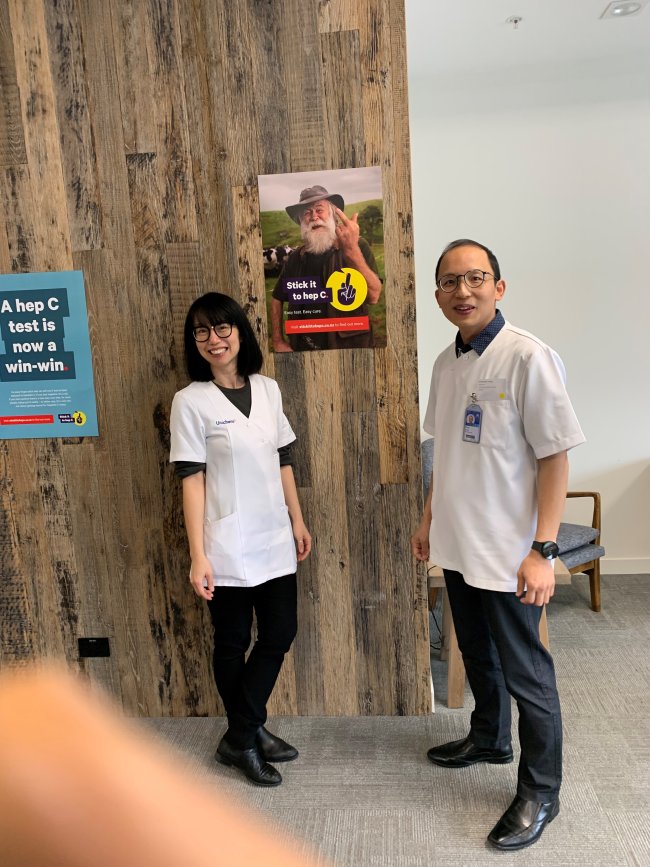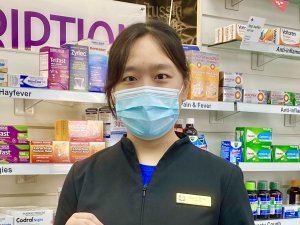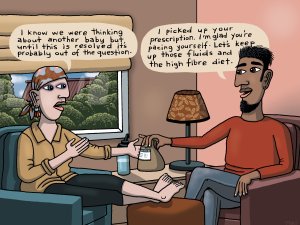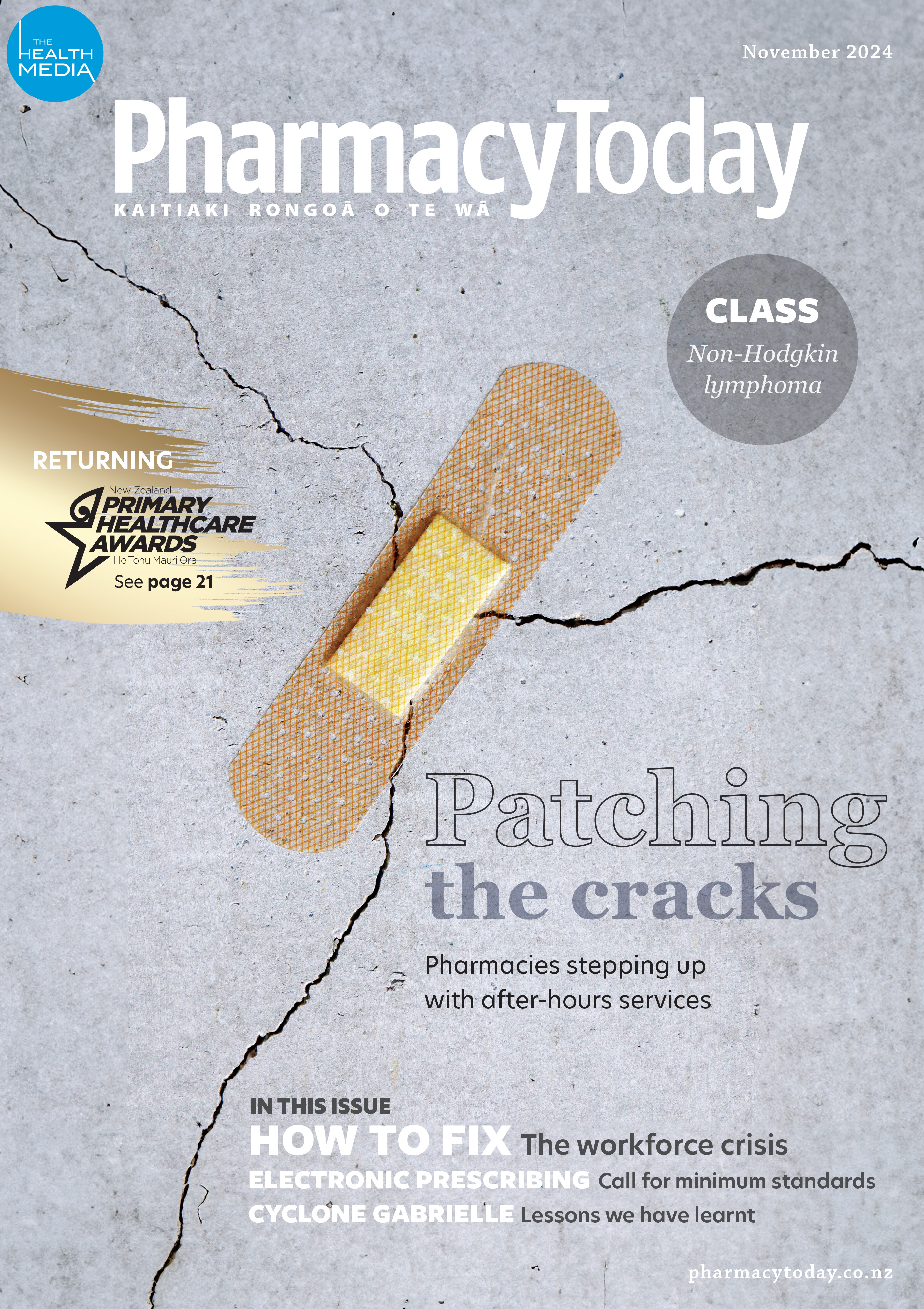Academic pharmacist Nataly Martini highlights the importance of understanding non-Hodgkin lymphoma and pharmacists’ roles in managing this condition
Hepatitis C programme in pharmacy to expand nationwide with publicity launch
Hepatitis C programme in pharmacy to expand nationwide with publicity launch
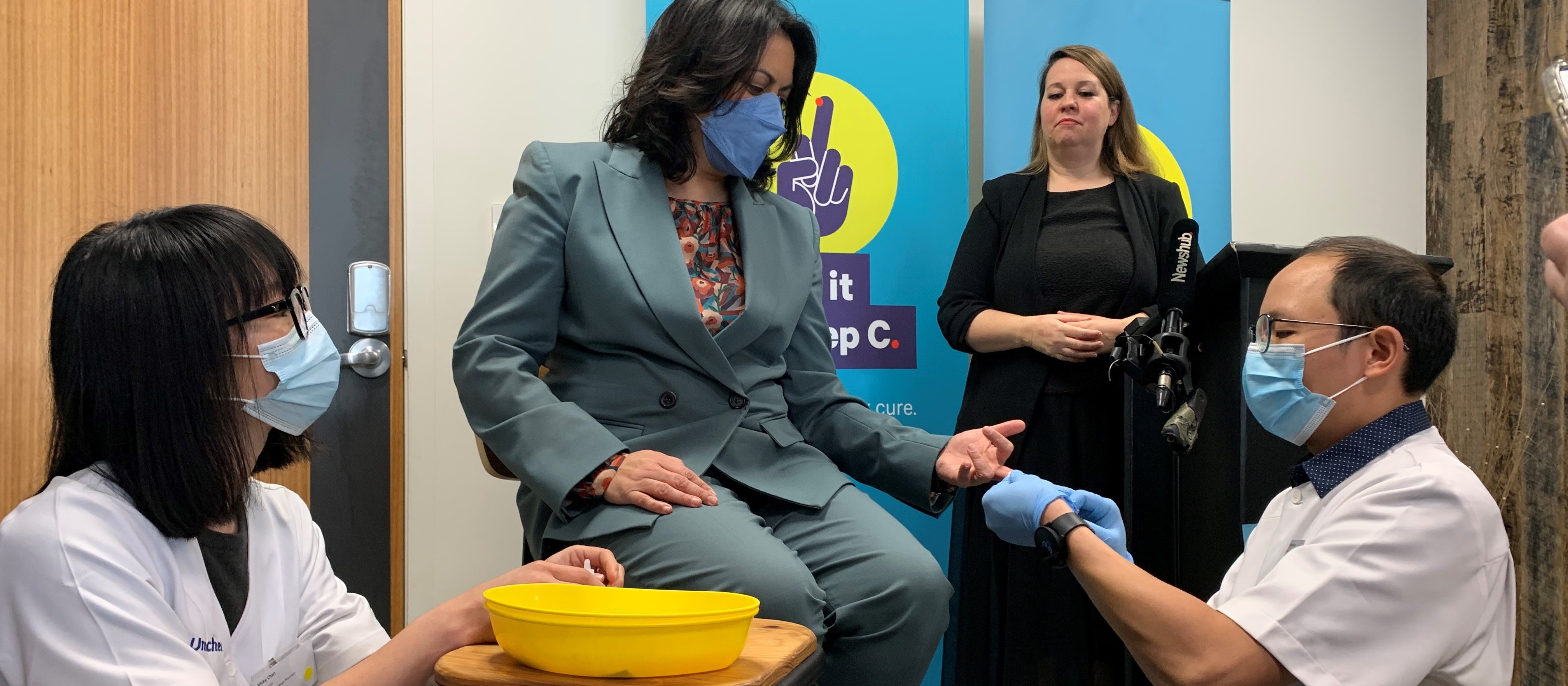
“We are from the future”
Ten thousand New Zealanders have been cured of hepatitis C with 5000 of them being treated with the funded antiviral Maviret, but up to 45,000 are estimated to be still living with the disease untreated.
The National Hepatitis C Awareness Campaign announced today will also see the expansion of more pharmacies getting involved in the test-and-treat programme which has been running in 64 pharmacies over the past 12 months.
The launch of the campaign – “Stick it to hep C” – was held at Unichem Pakuranga Pharmacy which is one of the 64 involved pharmacies in Northland and Auckland.
Ed Gane, chair of National Hepatitis C Action Plan Working Group and Te Whatu Ora – Health New Zealand national clinical lead for the hepatitis C programme, said today that hundreds of tests had been carried out in pharmacies, and about six people received treatment. The test positivity rate was slightly more than that, at around 1-2 per cent.
The rollout of the test-and-treat programme will be expanded over the next few months, with all pharmacies invited to take part, Professor Gane says.
Programme manager for the Northern region Natalie Gauld says the programme is unlikely to be taken up by all pharmacies, as there is a need to target particular populations. Those most at risk of having hepatitis C include those who have used drugs intravenously, had a tattoo done without sterilisation, been in prison or had medical procedures in high-risk countries, such as in Egypt or eastern Europe.
Officially launching the campaign today, associate health minister Ayesha Verrall says it is a key milestone in the National Hepatitis C Action Plan that she launched in Anglesea Pharmacy Hamilton exactly a year ago, also on World Hepatitis Day.
Dr Verrall says there are about 1000 new infections of hepatitis C each year, and every year about 200 people die of hepatitis C, even though it’s now simple to test for and there’s an easy cure.
But stigma around the condition prevents many from raising their risk of infection with their GPs, so over the 10 months to the end of April, the test-and-treat programme has been offered in pop-up clinics, on marae, at probation services, in isolated areas, as well as pharmacies.
More than 2000 people were tested over that 10-month period, and 500 of them began treatment with Maviret, she says.
Work is also under way to understand the epidemiology of hepatitis C in New Zealand – its prevalence and where the areas of high incidence are so that services can be better targeted to those who need it, she says.
The procedure for those who agree to it involves a finger-prick test that can detect hepatitis C antibodies within five minutes.
If the test is positive, the patient is referred for a further blood test to determine if the infection is active. If it is active, and the patient meets the right criteria, the pharmacy can dispense an eight-week course of Maviret under standing orders.
Dr Gauld says the COVID-19 lockdown coming almost immediately after the programme was launched had a huge impact on the uptake of testing. Originally, the goal was to eventually to treat around 75 people a year in pharmacy but with COVID-19, hepatitis testing was not seen as urgent.
Vicky Chan, co-owner of Unichem Pakuranga Pharmacy, also spoke at the 30-strong gathering, saying it is a privilege to be involved and that pharmacy has stepped up again to deliver it.
Chris Leung, pharmacist and outreach vaccinator for the Northern Region Health Coordination Centre (NRHCC), added that his slogan when delivering the service to patients is “We are from the future” in that patients who get treatment now prevent liver cancer later.
He and Ms Chan then demonstrated the finger-prick test on Dr Verrall, noting that it looked similar to the rapid antigen test.
Ms Chan later says her involvement in the programme began before the pandemic and from her experience the key issue is taking a non-judgemental approach, at the same time as trying to identify patients who might be at risk.
Life Pharmacy Pakuranga across the road, which Vicky Chan also co-owns, runs a needle exchange programme which attracts many high-risk patients, and Ms Chan says it’s about building relations. “The more you do it, the easier it gets,” she says.
Mr Leung has been helping Ms Chan as well as running outreach services in his NRHCC role in police remand centres and elsewhere, where he offers vaccinations along with hepatitis C testing.
He is an advocate of making the most of any patient visit, such as using the post-vaccination observation time for a five-minute hepatitis C test.
“It’s about upselling” – whether that’s flu vaccinations while also checking patients’ MMR status, he says.
Ms Chan says financially, the testing programme is not really worth it for her pharmacy at this stage, but she’s not doing it for the money. “We’re thinking about the longer view.”
It’s important to build trust in the local community through offering services so pharmacists become the professional patients turn to when they want help, she says.



